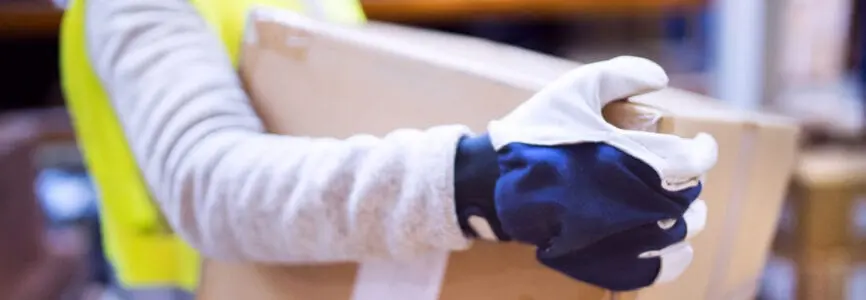Bioethics Forum Essay
Lawsuits of Last Resort: Employees Fight for Safe Workplaces during Covid-19
The coronavirus pandemic has generated wide-ranging responses by public health officials, clinicians, and researchers, including unprecedented levels of testing and contact tracing, government-mandated social distancing, and accelerated vaccine research and development. In such exigent circumstances it is not surprising that novel legal theories also have been asserted to compel employers to protect employees exposed to SARS-CoV-2. Several recently filed cases have caused some lawyers to ponder a branch of law they have not thought about since law school–public nuisance.
Broadly defined to include everything that endangers life or health, gives offense to the senses, or violates common decency, public nuisance traditionally included such activities as maintaining a house of prostitution or gambling.
Under English law, as adopted by the American colonies and later by the states, a legal action for public nuisance could only be brought by the government. In general, individuals cannot sue unless they can show “special injury,” but the states differ on whether this requires injuries of a distinct kind not experienced by the public, injuries of a greater degree, or both. For example, the parents of a child who drowned in a pond located on land used by the city of Houston for garbage disposal sued the city and claimed that the garbage dump was a public nuisance. The court ruled that the unique harm suffered by the parents constituted special injury permitting them to recover.
Because of the special injury rule, lawsuits by individuals based on public nuisance are difficult to win and therefore public nuisance is regarded as a last resort legal theory when traditional legal approaches cannot be used. Public nuisance most often has been used for environmental hazards, such as water and air pollution, oil spills, and even climate change. However, if there is an applicable statute covering the allegedly unlawful conditions, a lawsuit based on public nuisance will usually be precluded.
For SARS-CoV-2 hazards in the workplace, the relevant statute is the Occupational Safety and Health Act, but by mid-July, the U.S. Department of Labor had brought only two minor enforcement actions charging employers with inadequately protecting exposed employees. There are no standards regulating SARS-CoV-2 or other coronaviruses, and the Occupational Safety and Health Administration (OSHA) has not used any other means to address the thousands of cases of illness and death among health care professionals and nursing home staff, meat and poultry workers, retail food and grocery employees, and other workers. OSHA and the Centers for Disease Control and Prevention have published joint guidance on Covid-19, but it is not binding on employers and OSHA has refused to enact an emergency temporary standard to address these dangerous working conditions. A lawsuit by the AFL-CIO to require OSHA to issue an emergency coronavirus standard was dismissed by the United States Court of Appeals for the District of Columbia Circuit.
There are 22 jurisdictions with OSHA-approved state plans, including Virginia and California. On July 15, Virginia became the first state to adopt an emergency temporary standard for coronavirus exposure detailing the measures employers must take to protect employees. In 2009, California adopted a standard for aerosol transmissible diseases, which applies to Covid-19, and Cal/OSHA recently published an industry-specific guide for Covid-19 compliance. Unfortunately, other states have not taken similar actions to safeguard employees.
The inadequate protections in several high-hazard workplaces has led desperate employees to bring public nuisance lawsuits against large companies such as Amazon, Dollar Tree, McDonald’s, and Smithfield Foods. The employees are not seeking monetary damages, but an injunction to force their employers to take such measures as distributing sanitary face coverings, providing handwashing time and stations in the workplace, enforcing social distancing requirements for customers and staff, and supplying disinfectants and cleaning agents.
A federal judge recently dismissed a public nuisance lawsuit against a Smithfield Foods pork plant in Missouri for lack of jurisdiction. The judge reasoned that President Trump’s executive order calling on meat packing plants to remain open during the pandemic meant that the executive branch and not the courts was responsible for overseeing workplace conditions.
In contrast, a public nuisance lawsuit by McDonald’s employees in Chicago seeking an injunction to force the fast food company to supply gloves and masks, and to enforce social distancing, is proceeding. The Cook County, Illinois Circuit Court denied McDonald’s motion to dismiss the case.
It remains to be seen whether these “last resort” cases based on public nuisance law or the publicity they bring will ultimately succeed in getting employers to provide heightened protection for employees in the face of Covid-19.
Mark A. Rothstein is the Herbert F. Boehl Chair of Law and Medicine and Director of the Institute for Bioethics, Health Policy and Law at the University of Louisville School of Medicine, and a Hastings Center fellow. Julia Irzyk, a graduate of Georgetown University Law Center, is the co-author of Disabilities and the Law, 4th edition (Thomson Reuters 2020). Twitter @juliairzyk
45% of The Hastings Center’s work is supported by individual donors like you. Support our work.













